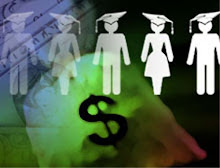When it comes to financial assistance, the amount received by college students could be extremely impacted in the coming years depending on who is elected president in the 2008 election. While both
Obama and McCain believe in increased access to higher education, Obama's plan seems to be more beneficial to future college students than McCains plan. McCain's plan focus's on simplification, specifically higher education tax benefits and federal financial aid, and repairing the student lending programs. By simplifying the complicated existing tax benefits, McCain hopes to ensure that a greater number of families will have a lower tax burden when sending their kids to college. McCain also plans to consolidate financial aid programs and the application process for student aid in order to simplify the administration of these programs and help students have a better understanding of their eligibility for aid. McCain has also proposed an expansion of the lender-of-last resort capability of the federal student loan system and will demand the highest standard of integrity for participating private lenders. Effective reforms and leveraging the private sector will ensure the necessary funding of higher education aspirations, and create a simpler and more effective program in the process.
Obama is also in favor of simplifying the financial aid process, only he plans to eliminate the current federal financial aid application and allow families to apply simply by checking a box on their tax form, authorizing their tax information to be used, and eliminating the need for a separate application. Another plan Obama has proposed is the creation of the American Opportunity Tax Credit which makes college affordable for all Americans.
This universal and fully refundable credit will ensure that the first $4,000 of a college education is completely free for most Americans, and will cover two-thirds the cost of tuition at the average public college or university.
In a presidential debate on Tuesday, October 7, the candidates discussed their
higher education goals in more detail. Obama is a strong advocate of government spending for higher education placing the issue of education as his top third priority, right after energy and health care. According to him education has to be at the top of the list so that the nation can help young people be competitive in the global economy. Obama relates his views to personal experience thanking scholarships for his ability to attend college. He remarked that the American dream seems to be diminishing, in part because young people “who’ve got the grades and the will and the drive to go to college” don’t attend because they don’t have the money. While Obama advocated higher education spending, McCain focused on eliminating wasteful spending by eliminating earmarks — spending that individual lawmakers allocate on a noncompetitive basis to colleges and other entities — and by freezing most federal spending. The areas he singled out as exceptions that might receive more government support were defense and veterans affairs. “Obviously we’ve got to stop the spending spree that’s going on in Washington,” was McCain's explanation adding that he wanted to reduce the debt being left to young people.
The candidates approach the matter of government spending form opposite directions. Senator Obama believes in increasing financial aid spending while reining in government spending in other areas.,This will directly affect students and families and allow a more immidiate solution to college affordability. McCain believes in eliminating federal earmarks that often benefit college projects, and advocates an across-the-board freeze in federal spending, to help stabilize the economy. This will not help families in paying for college but may help with the current financial crisis. Obviously being a student, I am going to side with Obama, as his plan will allow students many more options in paying for college tuition.
